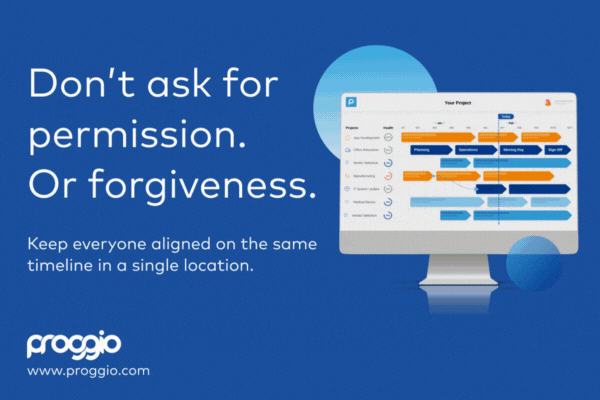
Question Everything: Accept and Manage Uncertainty
“If you think you are certain, rub your eyes.” Rumi
I am reminded that it is easy to be deluded into certainty. Powerful clients and executives may insist upon guarantees. Laws may be passed that mandate deadlines and budget caps.
Aside from change and impermanence what can we be certain of?
Is it certain that a product being developed at a high cost will be profitable or that an expensive vacation will be enjoyable? Can you be certain that a vendor will deliver a quality product that you need to meet your project objectives on time? Can you be certain that your goals are worthy of the effort to be made to achieve them? Can you be certain that you are doing a good job without feedback from others and objective measures of success? Can you be certain that you will still have your job tomorrow or, even, that you will be alive tomorrow?
Yet, we need to set and achieve goals and have a good, solid sense of self-worth and our capacity to play our roles. This is particularly important while playing the role of a project manager who must manage expectations to achieve success.
We can manage the reality of uncertainty by acknowledging that there are degrees of probability and by getting candid feedback from others. We need to become comfortable with uncertainty.
Self Confidence and Being Certain
Not long ago my eight-year-old granddaughter was given the honor of reading her response to a quote from Michelle Obama to the entire school.
Obama wrote “Always stay true to yourself and never let what somebody else says distract you from your goals.”
Granddaughter said, “This quote is important to me because it reminds me to not listen to what other people say about me and believe that I am whatever I want to be and just be myself and what other people say about me are not true.”
The part about not listening to what other people say, struck me as being all too prevalent as an attitude that pervades projects, politics, business and personal life. People fixate on beliefs and are unwilling to test them in the light of objectivity. Their certainty in their belief powers their actions and may help them succeed, but it creates a barrier to going beyond blind belief to test the value of their belief.
There is something to say about listening to what others have to say and seeing if it may be true. Not everyone is always able to objectively see themselves or their work without feedback from others. Robert Burns wrote
“Oh, would some power give us the gift
To see ourselves as others see us!
It would from many a blunder free us.”
Managing Uncertainty is an Art
Uncertainty is a factor that increases as complexity increases and as there is ambiguity about goals, objectives, roles, responsibilities and the availability of adequate resources. Managing uncertainty is an art that is fundamental to optimal performance.
[widget id=”custom_html-68″]
Managing Project Plan Uncertainty
Over confidence in project plans and lack of confidence in one’s ability to push back are success factors. Back in June 2017 I wrote that
“As I point out in my book, Managing Expectations: A Mindful Approach to Achieving Success, it is irrational to think that a plan will truly reflect the outcome with 100% accuracy. This is particularly true for complex projects and for plans that are made well in advance of actual performance.
“Managing and performing under uncertain conditions is a challenge. … Some people act as if they think that there is 100% assurance that the planned end date will be met within budget, while producing a quality outcome. Often, they deny the implications of current conditions and stick to the plan, no matter what.”
Is Planning Futile?
There is another paradox. Plans are subject to change, and they are also critical to success. Planning is not futile just because plans are not 100% accurate.
Plans seem to communicate certainty, but they do not determine outcomes. Skillful managers highlight and continue to remind stakeholders that while the plan and the constraints it sets do influence performance, there is uncertainty.
Take the time and effort to open the planning process to input from performers and other stakeholders. Be open to criticism, making sure that the criticism is founded on more than opinion and belief. Regularly assess current conditions and adjust. Mange risk.
Risk and Contingency Plans
Risk management is the principle factor in getting the uncertainty message across. You risk failure if the people who raise questions about potential negative outcomes are eliminated from the planning process and risks are ignored.
Success is measured by the degree to which expectations are satisfied. Acknowledging uncertainty enables the planners to be ready with contingency plans and to effectively manage expectations.
For example, in one project the ability to meet a mandated deadline to change an IT application to reflect newly agreed upon contractual terms was questioned. This questioning was greeted with the realization that a Plan B to address the required change with a manual procedure was required. The work to create the manual work around solution was planned in parallel with the IT development work so it could be ready just in case it was needed. A false sense of certainty based on the belief that IT development deadlines would be met because they were mandated from on-high can lead to great disappointment.
In another example, exterior work on a large building was planned to end in the Spring so that common outdoor space would be available for use during the good weather. The contractor signaled early in February that completion was likely to be in September. Building management had the time to reset residents’ expectations and to negotiate with the contractor to see how the work could be expedited. Had the contractor failed to notify management of the expected delay, perhaps because he was afraid to disturb a false sense of certainty, lateness would not have been averted and there would have been no time to address the issue.
Question Everything
Question your beliefs. As Rumi says, “If you think you are certain, rub your eyes.” Think again, get feedback, test your beliefs. Can they stand up in the face of criticism and questioning? If so, then hold to them. But if they do not hold up to scrutiny, change them.

다시보기
… [Trackback]
[…] Find More on that Topic: projecttimes.com/articles/question-everything-accept-and-manage-uncertainty/ […]
Buy magic mushroom online Portland
… [Trackback]
[…] Read More Info here to that Topic: projecttimes.com/articles/question-everything-accept-and-manage-uncertainty/ […]
cartel oil
… [Trackback]
[…] Read More on to that Topic: projecttimes.com/articles/question-everything-accept-and-manage-uncertainty/ […]
ks quik 2000
… [Trackback]
[…] Find More Info here to that Topic: projecttimes.com/articles/question-everything-accept-and-manage-uncertainty/ […]
jarisakti
… [Trackback]
[…] Read More Info here on that Topic: projecttimes.com/articles/question-everything-accept-and-manage-uncertainty/ […]